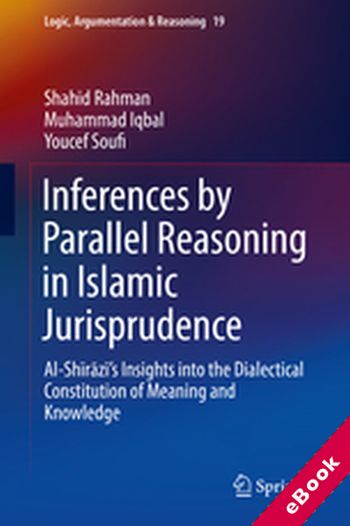
The device(s) you use to access the eBook content must be authorized with an Adobe ID before you download the product otherwise it will fail to register correctly.
For further information see https://www.wildy.com/ebook-formats
Once the order is confirmed an automated e-mail will be sent to you to allow you to download the eBook.
All eBooks are supplied firm sale and cannot be returned. If you believe there is a fault with your eBook then contact us on ebooks@wildy.com and we will help in resolving the issue. This does not affect your statutory rights.
This monograph proposes a new (dialogical) way of studying the different forms of correlational inference, known in the Islamic jurisprudence as qiyas. According to the authors' view, qiyas represents an innovative and sophisticated form of dialectical reasoning that not only provides new epistemological insights into legal argumentation in general (including legal reasoning in Common and Civil Law) but also furnishes a fine-grained pattern for parallel reasoning which can be deployed in a wide range of problem-solving contexts and does not seem to reduce to the standard forms of analogical reasoning studied in contemporary philosophy of science and argumentation theory.
After an overview of the emergence of qiyas and of the work of al-Shirazi penned by Soufi Youcef, the authors discuss al-Shirazi's classification of correlational inferences of the occasioning factor (qiyas al-'illa).
The second part of the volume deliberates on the system of correlational inferences by indication and resemblance (qiyas al-dalala, qiyas al-shabah). The third part develops the main theoretical background of the authors' work, namely, the dialogical approach to Martin-Loef's Constructive Type Theory. The authors present this in a general form and independently of adaptations deployed in parts I and II. Part III also includes an appendix on the relevant notions of Constructive Type Theory, which has been extracted from an overview written by Ansten Klev.
The book concludes with some brief remarks on contemporary approaches to analogy in Common and Civil Law and also to parallel reasoning in general.